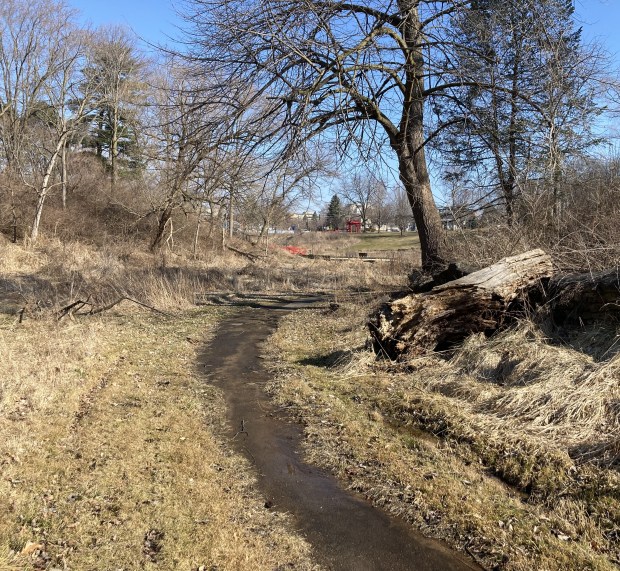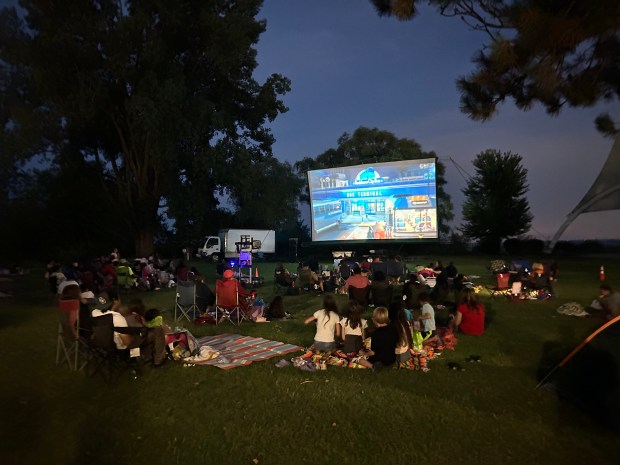Ravines along with the creeks and rivers that flow through them in Waukegan are the subject of a partnership between the city and the University of Illinois Chicago to help determine the role they play in combating the impact of climate change on people’s health.
Rachel Cantin, an assistant planner with the city overseeing the effort locally, said the school’s Climate Health Institute wants to know how the plentiful ravines in Waukegan, and the water flowing through them, help mitigate the impact of climate change on health.
“We are looking at the ravine system in Waukegan and how it can be used to mitigate the effect of climate change, and be a really great amenity for the community,” she said.
Part of the effort is a survey Cantin said the city is conducting to learn residents’ attitudes and preferences about ravines, creeks and rivers in the city.
Residents must take the survey by Friday — either online or by getting a paper copy at City Hall in Waukegan — to provide information to the Climate Change Institute and be eligible to win a $100 gift card.
Established in 2022 with a $100,000 grant from the U.S. Environmental Protection Agency, the Climate Change Institute is designed to train people to deal with the impact of climate change on health, according to a news release from the school.
Cantin said the survey is the first of several happenings the city will undertake as part of its partnership with the institute. It is affiliated with the university’s School of Public Health. It is one of 34 such programs around the country, according to the release.
Changing weather patterns can affect health in a variety of ways. Cantin said extreme heat and severe cold can both impact health. As the fluctuation becomes more frequent, the potential for harm increases, she said.
“Extreme weather can have an adverse impact on health, especially for the vulnerable population,” Cantin said. “Ravines are cooler in the summer. People go there for relief from the summer heat.”
An example of how climate change can impact both mental and physical health was on display on Feb. 27 when tornado sirens interrupted what people were doing that night amid winter, sending them to a safe place at home or where they were.
Sirens sounded approximately 40 minutes into the Waukegan Community Unit School District 60 Board of Education meeting that night. Board President Brandon Ewing immediately stopped the meeting sending people to the basement of the Lincoln Center administration building.
“What happened that night (in February) could be a contributing factor to climate change,” Cantin said. “Climate change creates extreme weather which is very different from what we are used to seeing.”
At least five parks in Waukegan feature ravines running through them, with trails where people can relax in a variety of ways. Waukegan Park District Executive Director Jay Lerner said in an email they play a role in making people healthier.
“Ravines and green spaces provide many benefits to our community from recreational opportunities to environmental education,” Lerner said in the email. “The Park District is committed to preserving the ravines and creating spaces where individuals can escape from urban life to improve their mental and physical wellbeing.”
Parks with ravines, creeks or rivers, include Roosevelt, Washington, Ray Bradbury, Bowen and Yeoman parks.
Participants in the survey have the opportunity to rate areas with ravines, creeks and rivers, as well as give reasons they either visit them or stay away. They are given a list of reasons to visit, which they can mark along with the distance traveled. The frequency of visits is measured, as are improvements preferred.
Cantin said the $100 gift card will be awarded to one of the participants through a raffle.





